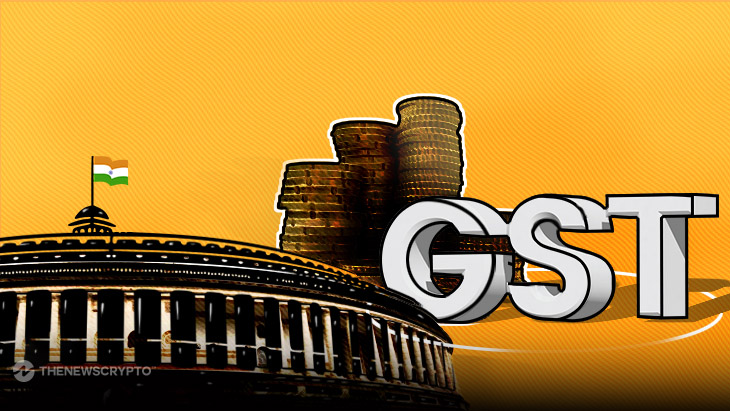 Editors News
Editors News - Sumit Gupta has voiced his concern regarding the negative impact of taxes.
- He highlighted the adverse consequences of a 1% TDS on crypto transactions.
In recent discussions on Twitter, industry experts and observers have raised concerns over the taxation policies implemented in India, particularly those affecting the crypto and gaming sectors. Sumit Gupta, CEO of CoinDCX, and Twitter user Ravisutanjani have voiced their apprehensions regarding the potential negative impact of taxes on these industries.
Sumit Gupta highlighted the adverse consequences of a 1% Tax Deducted at Source (TDS) on crypto transactions, asserting that it has had a crippling effect on the Indian crypto industry. According to Gupta, this policy has inadvertently favored offshore crypto platforms that operate outside the purview of Indian tax laws, disadvantaging local businesses and hindering industry growth.
Similarly, Gupta expressed concerns about the 28% GST levied on the entire face value of online gaming. He suggested that this tax rate could potentially decimate the Indian gaming industry, with illegal offshore platforms reaping the benefits at the expense of domestic companies.
Tax Burdens on Indian Citizens
Ravisutanjani further joined the conversation by pointing out the existing tax burdens on Indian citizens, including income tax rates of up to 30% and a 28% GST applicable to various goods and services. Ravisutanjani expressed frustration over the exclusion of fuel and alcohol from the GST ambit, while crypto and gaming face taxation.
Additionally, Ravisutanjani drew attention to the Board of Control for Cricket in India (BCCI), which is classified as a charitable organization, implying perceived inconsistencies in the tax system.
Both Gupta and Ravisutanjani argued that taxing emerging industries like crypto and gaming may lead to unintended consequences. They expressed concerns that such tax policies create arbitrage opportunities, benefiting illegal offshore platforms and causing detrimental effects on customers and startups.
It is important to note that these perspectives represent the opinions of individuals on social media platforms and may not reflect the entire range of views on the subject. As the debate surrounding taxation in the crypto and gaming industries continues, stakeholders and policymakers will likely consider these concerns while crafting future tax policies.
- SEO Powered Content & PR Distribution. Get Amplified Today.
- PlatoData.Network Vertical Generative Ai. Empower Yourself. Access Here.
- PlatoAiStream. Web3 Intelligence. Knowledge Amplified. Access Here.
- PlatoESG. Automotive / EVs, Carbon, CleanTech, Energy, Environment, Solar, Waste Management. Access Here.
- BlockOffsets. Modernizing Environmental Offset Ownership. Access Here.
- Source: https://thenewscrypto.com/crypto-news-28-gst-in-indian-gaming-sector/
- :has
- :is
- :not
- $UP
- 1% TDS
- 10
- 11
- 19
- 31
- 320
- 60
- 7
- 72
- 8
- 9
- a
- About
- According
- adverse
- affecting
- again
- Alcohol
- and
- any
- applicable
- arbitrage
- arbitrage opportunities
- ARE
- argued
- AS
- Asserting
- At
- attention
- author
- avatar
- benefiting
- benefits
- blockchain
- board
- body
- border
- brought
- businesses
- but
- by
- causing
- ceo
- Citizens
- classified
- CoinDCX
- come
- Companies
- concepts
- Concern
- Concerns
- Consequences
- Consider
- continues
- control
- Conversation
- could
- create
- cricket
- crippling
- crypto
- Crypto Industry
- crypto transactions
- Customers
- debate
- disabled
- discussions
- Domestic
- effect
- effects
- emerging
- Entire
- existing
- experts
- Exploring
- expressed
- Face
- fascinating
- For
- from
- frustration
- Fuel
- full
- further
- future
- gaming
- Gaming industry
- going
- goods
- graduate
- Growth
- had
- Have
- he
- Highlighted
- his
- HTTPS
- i
- Illegal
- Impact
- implement
- implemented
- important
- in
- Including
- Income
- income tax
- india
- Indian
- Indian tax
- individuals
- industries
- industry
- industry experts
- into
- IT
- JavaScript
- joined
- jpg
- Laws
- lead
- like
- likely
- loading
- local
- love
- loves
- max-width
- May..
- me
- Media
- nearly
- negative
- New
- no
- of
- on
- online
- online gaming
- operate
- operate outside
- Opinions
- opportunities
- organization
- out
- outside
- over
- own
- particularly
- Pay
- pays
- perceived
- perspectives
- photo
- Platforms
- plato
- Plato Data Intelligence
- PlatoData
- plugin
- policies
- policy
- policymakers
- Posts
- potential
- potentially
- put
- raise
- raised
- range
- Rate
- Rates
- reaping
- recent
- reflect
- regarding
- remains
- represent
- required
- Sectors
- Services
- sharing
- Similarly
- simply
- Social
- social media
- social media platforms
- Source
- stakeholders
- Startups
- subject
- such
- Surrounding
- system
- tax
- tax deducted at source
- Taxation
- Taxes
- that
- The
- their
- These
- they
- this
- those
- to
- Transactions
- true
- under
- User
- value
- various
- views
- webp
- which
- while
- WHO
- will
- wipe
- with
- without
- write
- yet
- Your
- zephyrnet














